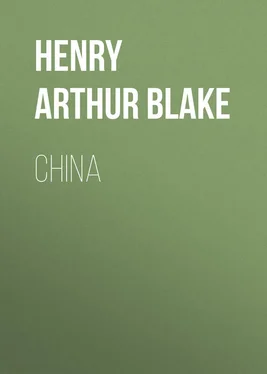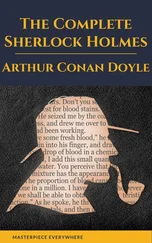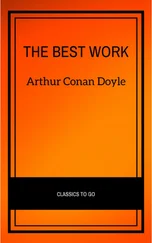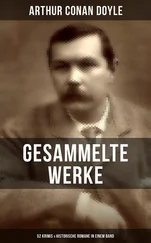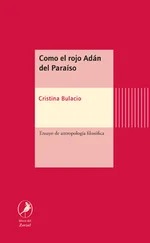Henry Arthur Blake - China
Здесь есть возможность читать онлайн «Henry Arthur Blake - China» — ознакомительный отрывок электронной книги совершенно бесплатно, а после прочтения отрывка купить полную версию. В некоторых случаях можно слушать аудио, скачать через торрент в формате fb2 и присутствует краткое содержание. Жанр: foreign_antique, foreign_prose, Путешествия и география, на английском языке. Описание произведения, (предисловие) а так же отзывы посетителей доступны на портале библиотеки ЛибКат.
- Название:China
- Автор:
- Жанр:
- Год:неизвестен
- ISBN:нет данных
- Рейтинг книги:4 / 5. Голосов: 1
-
Избранное:Добавить в избранное
- Отзывы:
-
Ваша оценка:
- 80
- 1
- 2
- 3
- 4
- 5
China: краткое содержание, описание и аннотация
Предлагаем к чтению аннотацию, описание, краткое содержание или предисловие (зависит от того, что написал сам автор книги «China»). Если вы не нашли необходимую информацию о книге — напишите в комментариях, мы постараемся отыскать её.
China — читать онлайн ознакомительный отрывок
Ниже представлен текст книги, разбитый по страницам. Система сохранения места последней прочитанной страницы, позволяет с удобством читать онлайн бесплатно книгу «China», без необходимости каждый раз заново искать на чём Вы остановились. Поставьте закладку, и сможете в любой момент перейти на страницу, на которой закончили чтение.
Интервал:
Закладка:
The family lands are apportioned annually, and from one particular portion the contribution must be paid towards the expenses of the local temple, including the theatrical performances that cost considerable sums. This portion of the family land is cultivated by each member of the family in turn. If the tenant be a Christian he declines to pay the money for purposes to which he claims to have a conscientious objection. Increased expense therefore falls upon the other members of the family, who feel that the secession has placed an additional burden upon them. The result is a feeling of antagonism to Christianity; otherwise religious intolerance is not characteristic of the Chinese.
The official hierarchy in China is peculiarly constituted. China is, like all democracies, intensely autocratic, and, within certain bounds, each official is a law unto himself. To become an official is therefore the ambition of every clever boy. At the triennial examinations held in the capitals of provinces, from 150,000 to 200,000 candidates present themselves, who have passed successfully preliminary competitive examinations held annually at various places. To compete in these examinations a certificate must be produced by the candidate that he is a member of a known family. If unsuccessful, he may go on competing at every triennial examination held during his life. Here we see the importance of family tablets in the ancestral hall. No barber, or actor, or member of the boat population may compete.
At Canton, and also at Nanking and other great cities, may be seen the examination halls and the rows of cells in which the candidates – after being rigidly searched to ensure that no scrap of paper or writing is retained that could assist them in the tremendous pending effort of memory – are strictly confined during the time that the examinations last. In Canton there are over eleven thousand; in Nanking there are many more. The lean-to cells are built in rows, and measure three feet eight inches in width by five feet nine inches in length, being six feet high in front and nine feet in the back. From this cell the candidate may not stir, except as an acknowledgment of failure, and many die during the trial. At Nanking during an examination an average of twenty-five deaths occurred daily.
Those who win the prizes are at once appointed to office, and are received at their homes with great honour. Of those who have passed lower down, some are allocated to different provinces, where they remain in waiting at the expense of the viceroy until some situation becomes vacant. Once appointed they are eligible for promotion to the position of prefect or taotai, or governor, or even viceroy. In all these promotions money plays no inconsiderable part, and a wealthy man may purchase mandarin's rank without the drudgery of examination, as is not unknown in countries that boast of more advanced civilization. In some cases, if a boy shows great intelligence and aptitude for learning, a syndicate is formed by his family, and no expense is spared upon his education. Should he be successful and attain a position of importance, his family rise with him in wealth and influence, and the syndicate turns out a productive speculation. The whole system of examination is one of cramming, which, with competitive examinations, was adopted by England from the Chinese.
The Chinaman who has passed the examination and received what we colloquially term his B.A. degree, even though he obtains no official employment, holds himself above all manual labour, and however poor he may be he belongs thereafter to the body of literati known as the gentry, who are consulted on all matters affecting the district in which they reside. It is not easy to know how they live, but the Chinese, like all Easterns, have a great respect for men of letters, and have not yet become so civilized as to abandon higher ideals for the degrading worship of wealth. There is probably found for such men suitable employment in their localities that works into the social economy. There are, of course, among them some lazy ones who, for want of regular work, abandon themselves to the solace of opium-smoking; but the class is a valuable leaven in the mass of the population.
The viceroy of a province is really semi-independent. His nominal salary in a province of possibly sixty millions of inhabitants is £1000 or £2000 a year, out of which he must supply an army, possibly a navy, internal customs, and civil service.
The taxes are very much at his discretion, with the exception of the settled duty paid by the cultivators on seed corn, that being the way in which the land tax is levied. That paid, the small cultivator is practically free from official interference, and such a man in China if quiet and honest is as free as any man of his position elsewhere.
This method of levying a land tax is most ingenious, and has existed from time immemorial. The land is taxed, not proportionate to its area, but to its productive capacity. Of two plots of equal area one may produce a return from two bushels, while the other being poorer soil will require wider sowing and take but one bushel. All seed must be procured through the official, who levies an equal rate upon it. The same idea governs the computation of distance. A road to the top of a hill may be counted and carriage paid for ten li, the return down hill being measured as five or six, it being assumed that the muscular exertion and time are in both cases being paid for at the same rate.
There are, besides the seed tax, likin, or internal customs, levied on transport of all commodities between districts, and various imposts upon traders. When a man has amassed any wealth he is bled pretty freely. Should a loan be requested it could only be refused at a risk that he would not care to face, and any idea of its repayment is out of the question. But should the demands exceed the bounds of custom there is a check. The people of all classes know pretty well how far the cord may be drawn before it breaks. Should the demands be excessive the people put up their shutters, refusing to do any business, and memorial the Throne. Should such a state of affairs continue for any time even a viceroy would be recalled. Such a state of affairs existed a few years ago in Canton over a proposal to collect a new tax. The people resisted, and at length the viceroy yielded.
The principles on which the viceroy acts are adopted in a lesser degree by all officials, but the people seem to understand the custom and accept it, and in the ordinary business of life justice is on the whole administered satisfactorily.
There are, of course, exceptions. In the province of Kwangtung the house of a well-to-do man living in the country was attacked by a numerous band of armed robbers. The owner stoutly defended his house and having killed three of the assailants the robbers decamped. But this was not the end of it, for the indignant robbers lodged a complaint with the magistrate, who summoned the owner of the assailed house to appear, which he did with fear and trembling. He was obliged to pay a hundred and fifty dollars before he was admitted to the presence of the magistrate, who, instead of commending him for his bravery, scolded him roundly, and ordered him to pay the funeral expenses of the three dead robbers. The system of payments to everybody connected with the court, from the judge downwards, would appear to be destructive of every principle of justice; but a highly educated Chinese official, who held the degree of a Scotch university and who had experience of the colony of Hong Kong, when speaking on the subject, declared that he would rather have a case tried in a Chinese court than in a British, for while he knew what he would pay in the first, in the colonial court the lawyers would not let him off while he had a dollar to spend.
When the territory of Kowloon was leased from China and added to the colony of Hong Kong (after some armed resistance by the inhabitants, who had been led to believe that with the change of the flag terrible things would happen to them), local courts were established giving summary jurisdiction to their head-men sitting with a British magistrate, but a proviso was inserted that no lawyer or solicitor should practise in these courts. The result was peaceful settlement of disputes, generally by the arbitration of the British magistrate, at the joint request of both parties to the dispute.
Читать дальшеИнтервал:
Закладка:
Похожие книги на «China»
Представляем Вашему вниманию похожие книги на «China» списком для выбора. Мы отобрали схожую по названию и смыслу литературу в надежде предоставить читателям больше вариантов отыскать новые, интересные, ещё непрочитанные произведения.
Обсуждение, отзывы о книге «China» и просто собственные мнения читателей. Оставьте ваши комментарии, напишите, что Вы думаете о произведении, его смысле или главных героях. Укажите что конкретно понравилось, а что нет, и почему Вы так считаете.
